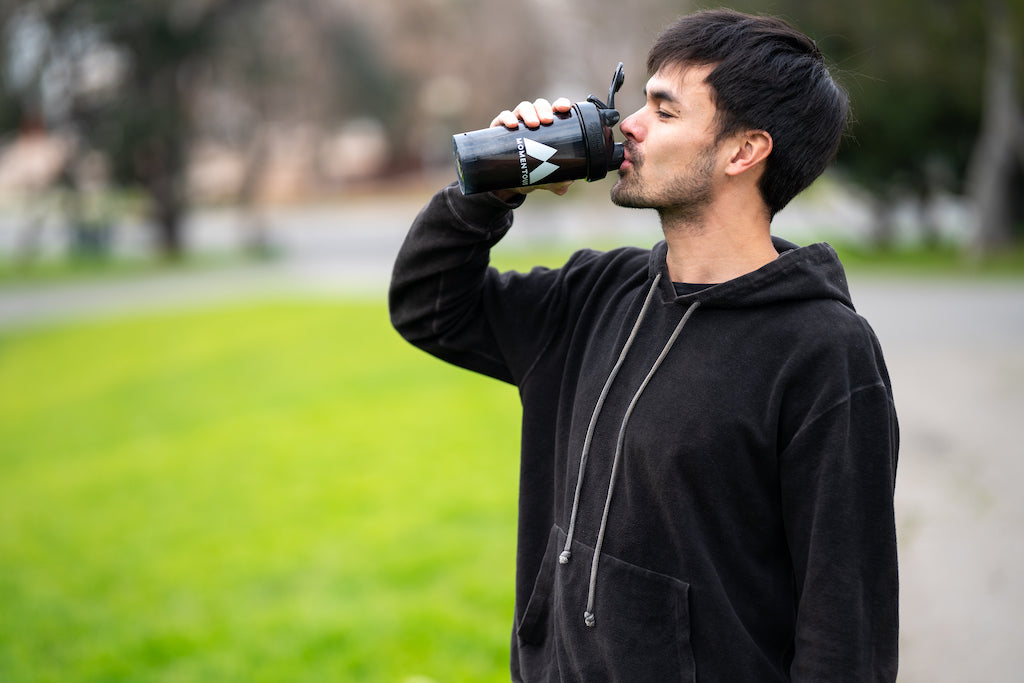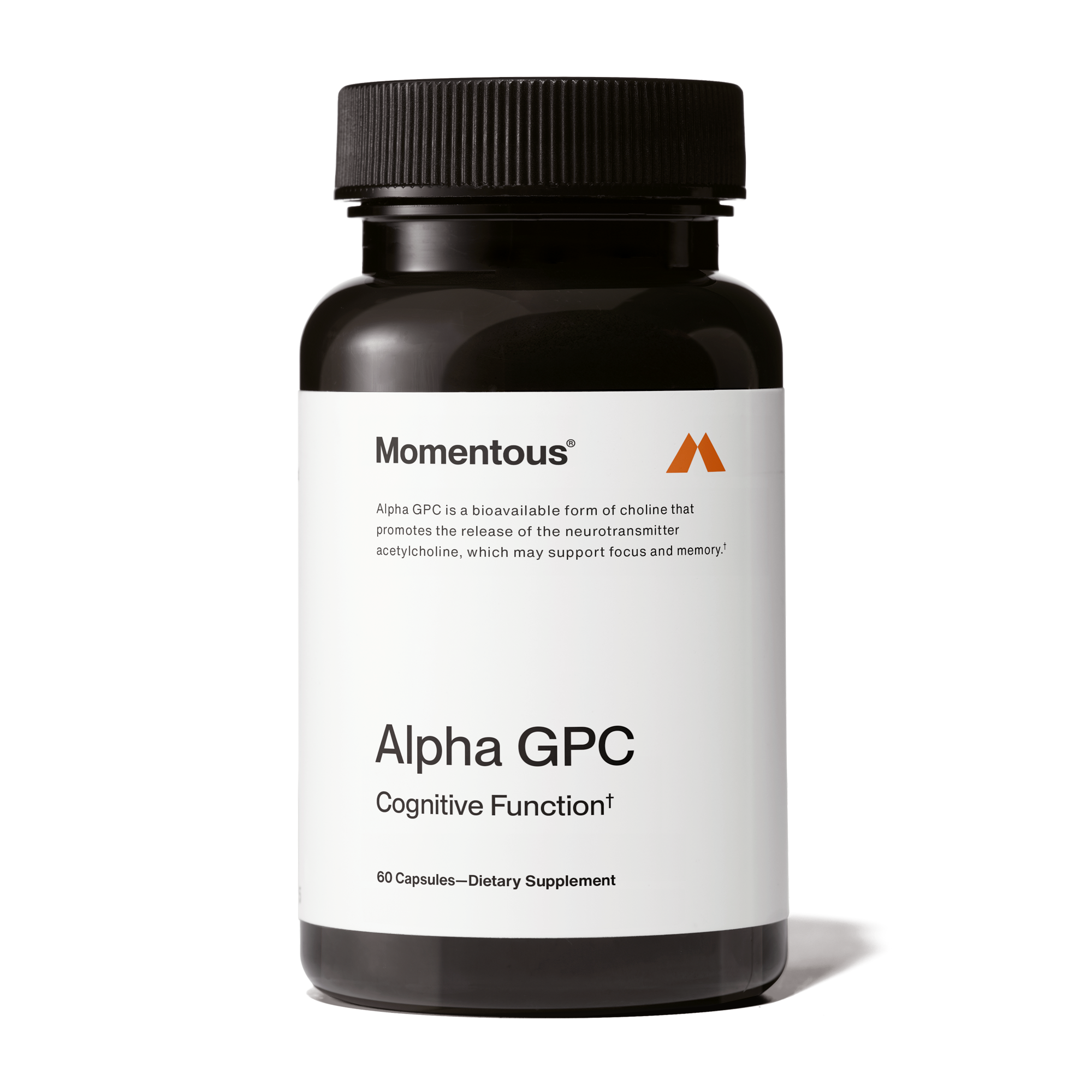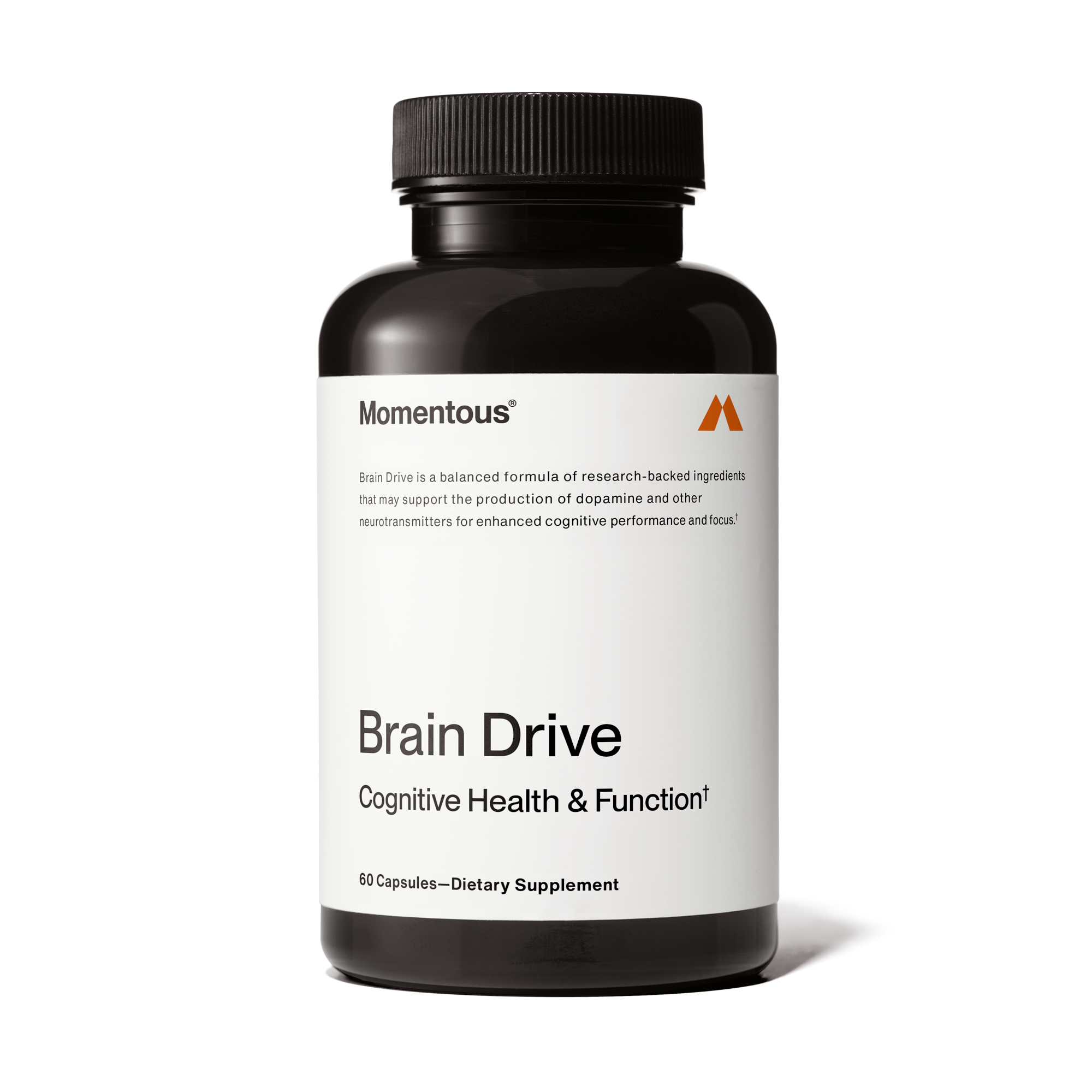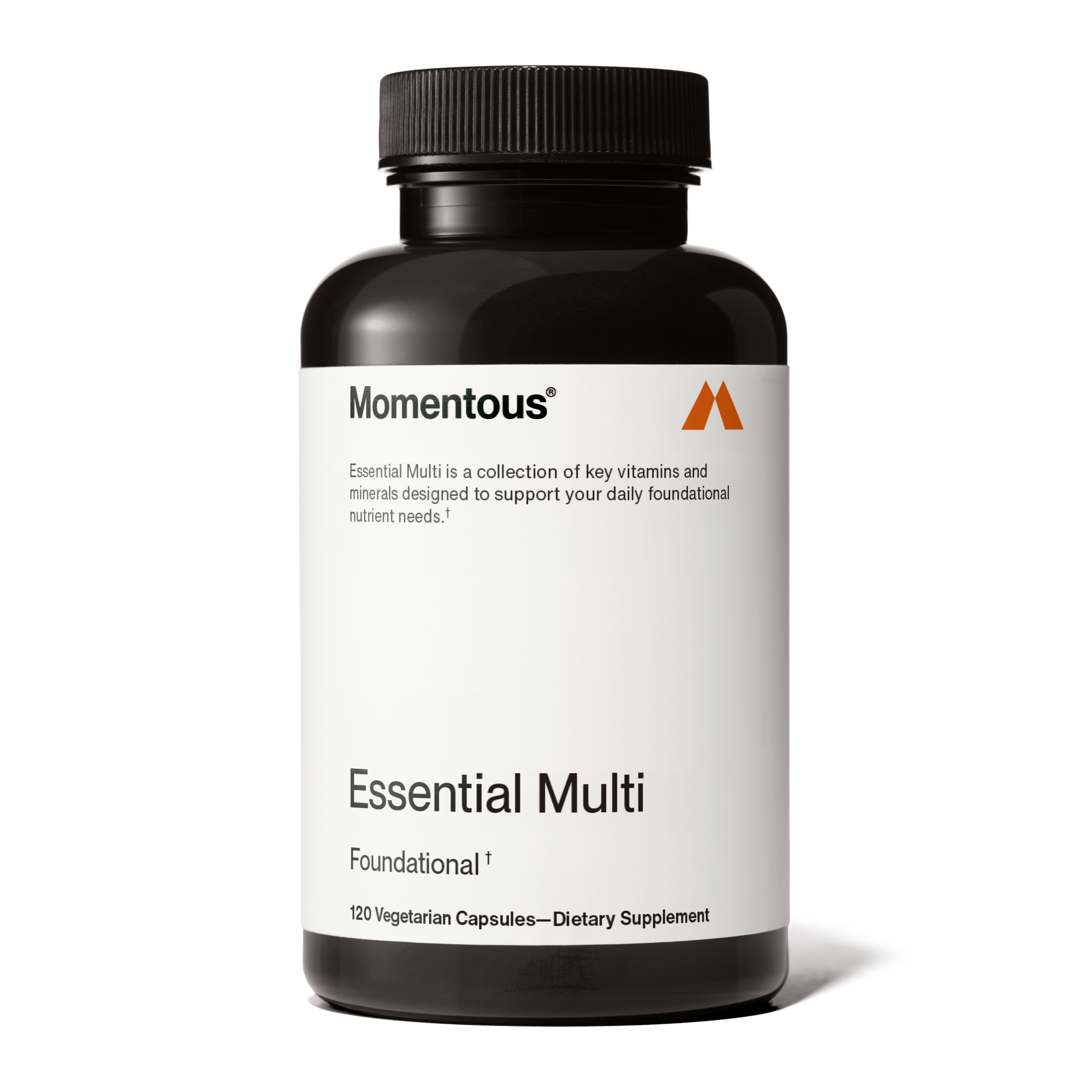Choline source that supports memory, focus + brain health
Daily nootropic blend for clarity, productivity + cognitive function
Whole-food–based formula to fill nutrient gaps for daily health
The Ins and Outs of Supplement Third-Party Certification
There are over 85,000 supplements currently available in the US. 55 percent of American adults – some 255 million people – take one or more daily. And yet there are only a handful of full-time government staff overseeing this vast market – which according to Statista is going to top $39 billion this year – despite an ever-increasing number of news stories on contamination and tainting. The industry is the equivalent of a John Wayne movie, in which the outlaws are many and the sheriffs are few.
For recreational athletes, the overwhelming number of options in every supplement category and their massive variation in quality and purity can be problematic. For pro competitors, the challenge is even greater, and a misinformed choice can inadvertently lead to a career-ending failed drug test. That’s not to mention the health costs of taking a supplement contaminated with heavy metals, solvents, and other toxic ingredients that result in an estimated 23,000 hospital visits annually.
Another issue is efficacy, or the lack thereof. Just because a protein supplement’s label says it contains 20 grams of whey isolate doesn’t mean that’s actually what is inside – it could actually be 18, 16, or 10 grams. Similar challenges apply to sourcing and manufacturing – as a consumer you only see the container on the shelf, and have little to no knowledge of what’s really inside, where it came from, or how it was processed. You have to take what the company is telling you at face value, and hope they’re telling the truth.
Yet in an industry largely left to self-police, this is not always the case. A study published in the JAMA Network Open journal in 2018 found that 776 supplements had been found to contain “unauthorized pharmaceutical ingredients.” 97 percent of these were not listed on the labels, and only 48 percent of the products were withdrawn from sale. Commenting on the findings in a San Francisco Chronicle article, Dr. John Swartzberg, director of the UC Berkeley Wellness Letter, said, “This is just the tip of the iceberg. What we’ve created is an industry that many have described as the Wild West, with very poor controls.”
While the study was a microcosm, it highlights several issues with the supplement industry. First, the success of any honors system is predicated on the assumption that manufacturers are honorable. Second, the federal government is catching a very small percentage of those who are prioritizing profits over safety. And third, even once a product is found to be impure, it often remains available to the public.
There’s also a tendency for companies to take a trending ingredient like resveratrol that has some benefits and try to make it sound like a cure-all. A manufacturer can make outrageous claims on their packaging and in their marketing campaigns, and as long as they slap a disclaimer sticker on the bottle and nobody gets sick from using their products, they’re in the clear. Even if what they’re selling contains little or none of the main ingredients that are supposedly in the bottle.
Such ambiguity and sensationalist advertising don’t fly with professional teams, elite coaches, and athletes, or with drug testers who hold athletes responsible for what they put into their bodies. The margin of error in elite sports is so small that these professionals cannot afford to take chances. If their players are going to take a supplement, it has to be of the highest quality, contains no contaminants, and support excellence at the apex of sports.
“NSF comes in and meets us in the middle by providing a service that makes companies hold themselves to a higher standard and the process to go through that is very rigorous,” said Tim Caron, head coach at Allegiate and a Momentous Performance Engineer. “Having that peace of mind knowing that a company went that extra step to really follow through, has integrity, and makes sure they’re providing really high-quality products makes a big difference. As an athlete or someone who’s competitive, NSF certification is something you should really look for in your supplements.”
The NSF Difference
Given how large the supplement market has become, it’s not surprising that in the past few years the number of third-party testing organizations has also ballooned. If you picked up 10 products in a certain category, you could see labels for 10 different entities. While there is some validity to each, not all of them are rigorous and some are little more than pay-for-play – a company forks over some cash, they get their certification credentials. In competitive sports, however, there are very few testing product certification programs that pass muster. The leader is unquestionably NSF.
Many certifiers and testers have only been in business for a few short years. On the other hand, NSF can trace its roots back to 1944, when as the National Sanitation Foundation, it evaluated the cleanliness of water fountains and lunch preparation equipment. In the decades since, NSF has expanded its scope to a broad range of public health and safety-based risk management solutions. Globally, the company employs 2,700 specialists that includes microbiologists, toxicologists, and chemists who pursue a science-based approach.
After coming up with the gold standard certification program for dietary supplements, NSF/ANSI 173, NSF went even further with the introduction of the NSF Certified for Sport® initiative, which helps athletes make safer decisions about what they take to fuel performance and optimize recovery. Criteria include making sure a product doesn’t contain any of the 270+ substances banned by most sports’ governing bodies, reconciling what’s on the label with what’s actually in the package, and guaranteeing that there are no harmful contaminants present. MLB, NHL, and CFL clubs are permitted to provide and recommend only products that are NSF Certified for Sport. The program is also recommended by the NFL, PGA, LPGA, CCES, CPSDA, and many other sports leagues and organizations.
The Benefits of Batch Testing
Another factor that sets NSF apart from other testing organizations is frequency. Several others conduct in-depth laboratory analysis, but this is typically a one-time only process. The trouble with an individual test is that even if a product meets certain criteria initially, there’s no guarantee to consumers that it will continue to be made to the same standard. When a company begins expanding its offerings and/or begins making certain products in more than one facility, this can increase the risk of contamination and make it difficult to maintain quality control. Often, such issues are not the result of willful negligence, but rather circumstance. Nonetheless, with one-off certifications, the original testers, the company itself, and, most importantly, the consumer can be none the wiser that products that were once top-notch have diminished in quality.
To head such issues off at the pass, NSF doesn’t merely conduct a single evaluation, but tests each and every batch to ensure that purity and efficacy are established and maintained.
“It’s essential that every step of the supplement production process is verified from start to finish,” said Brian Jordan, Technical Manager at NSF Certified for Sport. “There can be inconsistencies from batch to batch, which is why finished product testing is so important. But if you are audited by an independent third party every six months and you’re abiding by good manufacturing practices in GMP-certified facilities, then the likelihood of any kind of contamination or adulteration is much less.”
If a product fails to measure up, NSF can issue a public warning or even rescind certified status if the issue isn’t acknowledged and quickly remedied by the manufacturer. With regard to the production-related issues just mentioned, the organization goes even further and also applies a set of demanding guidelines to every facility that produces the product that it’s testing. These include verifying that the product is made at GMP registered premises and a twice-annual audit of manufacturing practices to ensure quality and safety. This way, a product isn’t being made this way at one location and that way at another. Such thoroughness ensures that both companies and the customers they serve have peace of mind, safe in the knowledge that every single container that bears the NSF Certified for Sport logo contains only what’s listed on the label and is created in a responsible manner from unadulterated ingredients.
“As well as assessing how a product is made, we’re also evaluating label claims, checking for heavy metals, pesticides, and toxins, and ensuring that there are no traces of 272 banned substances,” Jordan said. “Because the NSF Certified for Sport program is so comprehensive, we’re able to help the companies that come to us – like Momentous – do right by their athletes. As a non-profit, we’re living out our mission, which is to protect and improve human health.”
Solving the Athlete’s Supplement Dilemma
Ensuring that nutritional supplements are safe and clean is one thing for Major League teams guided by a professional like Momentous Performance Engineers Jordan Mazur (San Francisco 49ers), Brandon McDaniel (LA Dodgers), or Mike Potenza (San Jose Sharks). For individual athletes who lack the gatekeeping and direction, it’s quite another. Such performers have an even greater need for quality assurance provided by the NSF Certified for Sport designation. Those who compete in sports that have recently tightened anti-doping policies in response to scandal after scandal – like cycling and track and field – are finding it increasingly arduous to navigate the murky waters of the largely unregulated supplement marketplace.
Such competitors don’t just have to fully commit to optimal training and recovery, but must also juggle the demands of building their own personal brands. The modern athlete is an entrepreneur and small business owner in their own right, and is pulled in umpteen different directions by everything from securing sponsorships to planning racing calendars to negotiating contracts. They simply do not have the bandwidth to dive deep into researching which supplements are safe and which could be potentially toxic (or, indeed, inadvertently lead to a positive drug test result).
So having a program like NSF Certified for Sport provides an invaluable shortcut. Knowing that they can narrow a potentially unlimited number of choices down to products bearing this badge (searchable on the NSF Certified for Sport website or via its app) enables athletes to select only supplements that support optimal performance and recovery, without the fear that they might be jeopardizing their health or career. By simplifying the decision-making process in this way, athletes can redirect time, attention, and energy back to what matters most – being their best on game day. We’re proud to say that Momentous grass-fed whey and plant-based proteins have achieved NSF Certified for Sport status.
“As a professional athlete, I am responsible for everything that enters my body,” said Ben True, who won the 2018 New York Half Marathon Ben True. “The unfortunate reality is that the unregulated supplement industry is notorious in misrepresenting their products and not accurately labeling their ingredients. This creates a dangerous scenario where you cannot trust the manufacturer’s label and have no idea what you are actually consuming. Thankfully, Momentous goes the extra mile to get every batch of their products tested by not one, but two independent certification companies so you know that their protein shakes only contain what is listed on the label. This transparency is paramount in your ability to know exactly what you are ingesting and ensuring clean sport.”















